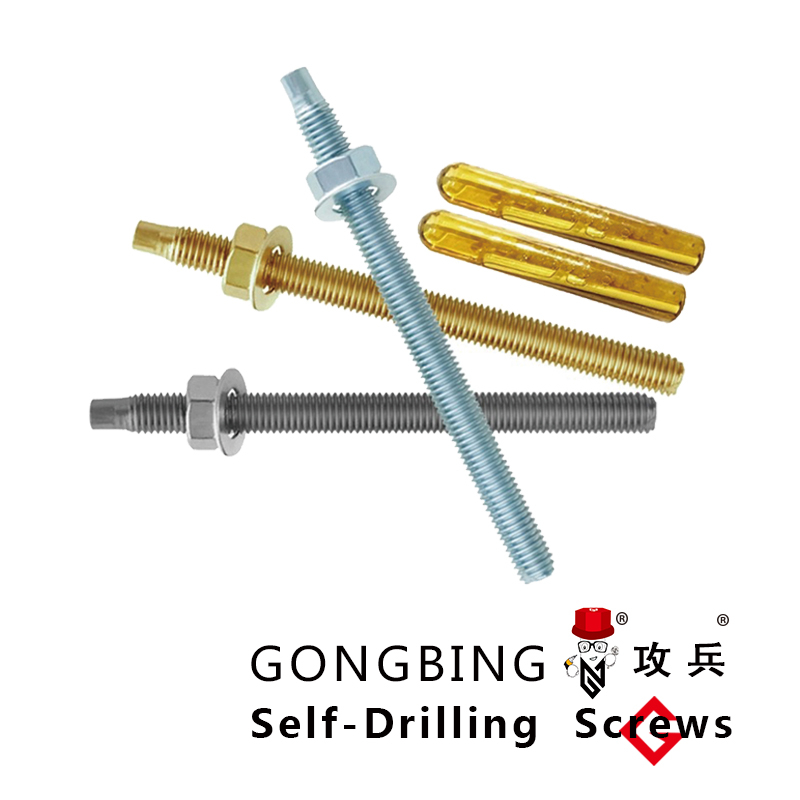Chemical Anchor Bolts for Concrete Applications in Construction and Structural Integrity Solutions
Chemical Anchor Bolts for Concrete A Comprehensive Overview
When it comes to securing structures and heavy equipment, the choice of anchor systems is critical. Among various options available, chemical anchor bolts have increasingly gained popularity in the construction and engineering sectors, particularly for their reliability and strength in bonding with concrete.
What Are Chemical Anchor Bolts?
Chemical anchor bolts are specialized fasteners that utilize a combination of epoxy resins or other chemical adhesives to create a durable bond with the concrete substrate. Unlike mechanical anchors that rely on friction or expansion to hold in place, chemical anchors provide a robust and long-lasting connection through chemical bonding. This method is particularly advantageous when dealing with cracked or weaker concrete where mechanical anchors may not provide the necessary strength.
Applications
The versatility of chemical anchor bolts makes them suitable for an array of applications. In construction, they are widely used for securing structural elements like steel beams, railings, and guard rails to concrete. They are also prevalent in the installation of machinery, HVAC units, and solar panel systems. Due to their outstanding load-bearing capabilities, chemical anchors are particularly useful in seismic zones where structural integrity is paramount.
Advantages of Chemical Anchor Bolts
1. Superior Load Capacity Chemical anchors often exceed the load capacities of their mechanical counterparts, especially in shear and tensile applications. This is crucial in environments that experience dynamic loads.
2. Bond Strength The chemical bond formed between the adhesive and the concrete can often withstand much greater forces than mechanical bonds, making them ideal for high-stress applications.
3. Resistance to Environmental Factors Many epoxy formulations are resistant to various chemicals, moisture, and temperature changes, enhancing the longevity of the bond. This makes chemical anchors suitable for outdoor and industrial applications.
4. Ease of Use The installation process of chemical anchor bolts can be straightforward with the right tools. Users can insert the bolt into the drilled hole and inject the chemical adhesive, which then cures to form a strong hold.
chemical anchor bolts for concrete

5. Versatility Chemical anchors can be used in a variety of base materials, including concrete, brick, and block, providing flexibility in selection based on the project requirements.
Installation Process
The installation of chemical anchor bolts involves several key steps
1. Surface Preparation The concrete surface should be clean and free of debris, dust, or oil. Proper preparation promotes optimal adhesion.
2. Drilling Using a hammer drill or rotary drill, holes are made to the specified diameter and depth. The size must correspond with the anchor specifications.
3. Cleaning Holes It is essential to clean the drilled holes thoroughly, often using compressed air to remove any dust or particles.
4. Injecting Adhesive The chemical adhesive is injected into the hole, often using a dual-cartridge system that mixes the resin and hardener as it is dispensed.
5. Inserting the Bolt The anchor bolt is placed into the adhesive-filled hole, and any excess adhesive should be wiped away to avoid creating a mess or complications during curing.
6. Curing Time Allow adequate time for the adhesive to cure before applying any loads to ensure maximum strength.
Conclusion
Chemical anchor bolts represent a critical advancement in fastening technology, providing engineers and construction professionals with a reliable solution for securing structures to concrete. Their exceptional load-bearing capacity, resistance to environmental factors, and ease of installation make them an attractive choice in modern construction practices. As buildings become taller and more complex, the demand for robust anchoring solutions like chemical anchors will undoubtedly continue to grow, ensuring safety and stability in structural applications. Whether for residential, commercial, or industrial projects, chemical anchor bolts are a smart investment for any construction endeavor.
-
Weatherproof Plastic Expansion Anchors for OutdoorNewsJun.06,2025
-
Sustainability in the Supply Chain: Eco-Friendly TEK Screws ProductionNewsJun.06,2025
-
Load-Bearing Capacity of External Insulation FixingsNewsJun.06,2025
-
Double Head Bolts: Enhancing Efficiency in Industrial MachineryNewsJun.06,2025
-
Corrosion Resistance in Chipboard Screws: Coatings for Wholesale DurabilityNewsJun.06,2025
-
Butterfly Toggle Bolts : Enhancing Structural ResilienceNewsJun.06,2025
